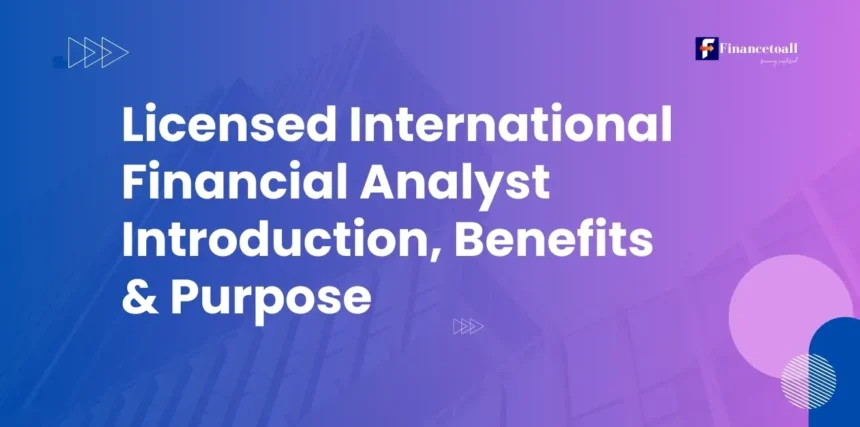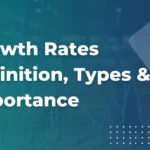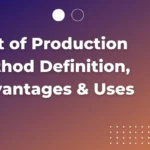Introduction to the LIFA Certification
The Licensed International Financial Analyst (LIFA) certification is a globally recognized designation tailored for finance professionals who want to excel in international financial markets. This certification emphasizes advanced financial analysis, ethical standards, and practical decision-making in a global context.
The Licensed International Financial Analyst (LIFA) certification is designed for professionals seeking expertise in international markets, ethical decision-making, and advanced financial analysis.
Key Takeaways
The Licensed International Financial Analyst (LIFA): A Snapshot
- Global Expertise with Ethics: LIFA equips professionals with a strong understanding of global financial markets, focusing on ethical decision-making and practical cross-border finance.
- Diverse Career Prospects: Opens opportunities in investment banking, asset management, corporate finance, and risk analysis, tailored for international and multinational roles.
- Focused on International Finance: Addresses challenges like diverse regulations, currency risks, and global market dynamics, setting it apart from other certifications.
- Flexible and Accessible: Offers affordable costs, flexible study options, and a clear pathway, ideal for professionals seeking advanced qualifications efficiently.
- Global Recognition: Respected in financial hubs like New York, London, and Hong Kong, providing credibility and a competitive edge in the global finance arena.
How LIFA Different From others
While certifications like the Chartered Financial Analyst (CFA) are highly regarded, LIFA carves its niche by focusing on international markets and ethical financial practices. It’s designed to meet the unique challenges faced by financial analysts working across borders. Unlike some certifications that prioritize either theoretical knowledge or specific technical skills, LIFA balances practical applications and ethical considerations, making it ideal for today’s interconnected financial world.
Who Governs the LIFA Program?
The LIFA certification is administered by the International Research Association (IRA), a reputable body committed to advancing financial education and professionalism worldwide. The IRA’s mission includes promoting best practices in global finance, which is reflected in the LIFA program’s comprehensive curriculum.
Purpose and Relevance of LIFA
Why LIFA Matters in Finance
The LIFA certification’s primary goal is to prepare finance professionals for the complexities of global markets. In an industry where financial systems are interconnected, analysts need tools to interpret trends, assess risks, and navigate regulations across various countries. The LIFA designation equips professionals with the knowledge to make informed decisions, whether they’re managing cross-border investments, evaluating multinational corporations, or advising on global portfolio strategies.
A Strong Emphasis on Ethics
LIFA stands out for its strong emphasis on ethical standards. Financial scandals and market volatility highlight the need for integrity in financial decision-making. The LIFA curriculum includes rigorous training in ethical practices, ensuring that certified professionals uphold transparency and accountability in their roles.
Bridging the Gap Between Theory and Practice
One of the most appealing aspects of LIFA is its focus on practical knowledge. While theoretical foundations are important, the program ensures that candidates can apply these concepts in real-world situations, such as risk management, financial reporting, and market analysis. This hands-on approach makes LIFA especially relevant for professionals aiming to thrive in dynamic international markets.
Meeting the Needs of International Professionals
In a global economy, professionals often face challenges like currency fluctuations, diverse regulatory frameworks, and cultural nuances in business. The LIFA program addresses these issues by offering a curriculum that is tailored to the needs of international finance practitioners, making it a valuable asset for those who aspire to work in multinational corporations or global financial hubs.
Target Audience
Who Should Pursue the LIFA Certification?
The Licensed International Financial Analyst (LIFA) certification is tailored for finance professionals seeking to expand their expertise in global financial markets. Here’s a closer look at the target audience:
- Financial Analysts: Professionals focused on analyzing data, forecasting trends, and making investment recommendations will find the LIFA curriculum invaluable for global markets.
- Portfolio Managers: For those managing diverse investment portfolios, the certification provides insights into international asset allocation, risk diversification, and ethical decision-making.
- Risk Management Professionals: LIFA equips risk analysts with the tools to assess and mitigate risks in global financial contexts, including currency, geopolitical, and market risks.
- Global Finance Practitioners: Any professional involved in multinational operations, from investment banking to corporate finance, will benefit from LIFA’s focus on international markets and regulations.
Why LIFA is a Good Fit
LIFA is ideal for professionals who:
- Want to enhance their understanding of global financial systems.
- Are seeking a certification that balances practical knowledge and ethical standards.
- Aspire to work in roles that require cross-border financial expertise, such as investment advisors or wealth managers.
- Aim to set themselves apart in the competitive finance industry with a globally recognized credential.
Exam Structure and Levels
How the LIFA Examination Process Works
The LIFA certification involves a structured, multi-level examination process. Each level builds on the previous one, ensuring a comprehensive understanding of global finance.
- Number of Levels: Typically, the certification process includes multiple levels (e.g., three levels), each designed to deepen the candidate’s knowledge of core financial principles, practical application, and ethical standards.
Topics Covered in the Curriculum
Each level of the LIFA program focuses on a range of critical topics:
- Financial Statement Analysis: Understanding company performance through detailed analysis of financial statements.
- Portfolio Management: Building and managing diversified portfolios with a global perspective.
- Global Economic Principles: Assessing macroeconomic factors that influence international markets.
- Ethical Practices in Finance: Adhering to rigorous ethical standards when making financial decisions.
The breadth of topics ensures that LIFA candidates gain both technical skills and a strong ethical foundation.
Exam Format
- Question Types: The exams typically include a mix of multiple-choice questions, case studies, and essays to evaluate both theoretical knowledge and practical application.
- Assessment Approach: The format is designed to test not only a candidate’s technical understanding but also their ability to solve real-world financial challenges.
Why This Structure Matters
This layered approach ensures that LIFA-certified professionals are well-rounded and equipped to handle complex financial scenarios. The emphasis on ethics and international practices makes the certification particularly valuable for those in roles requiring global expertise.
Curriculum and Study Materials
What Does the LIFA Curriculum Cover?
The LIFA certification’s curriculum is designed to provide a robust understanding of international financial analysis. Here are the core areas it focuses on:
- Global Finance Principles and Strategies Candidates explore key aspects of global markets, including international trade dynamics, currency exchanges, and macroeconomic factors that impact financial decision-making.
- Ethical and Regulatory Considerations With a strong emphasis on ethics, the curriculum trains candidates to uphold transparency and navigate regulatory frameworks in various jurisdictions. This prepares professionals to handle cross-border financial compliance effectively.
- Risk Management Techniques Risk is inherent in financial decision-making, and LIFA equips candidates with advanced tools to assess and mitigate risks. This includes managing currency risk, credit risk, and market volatility.
- Advanced Financial Analysis Methods From fundamental analysis to technical strategies, LIFA dives deep into financial modeling, company valuation, and portfolio optimization techniques.
Access to Study Materials
LIFA candidates have access to a variety of resources to aid their preparation:
- Official Study Guides: The International Research Association (IRA) provides comprehensive guides covering each module, ensuring candidates stay aligned with the exam objectives.
- Online Learning Resources: E-learning platforms and video tutorials make it easier for professionals to study at their convenience.
- Third-Party Materials: Books, practice exams, and online forums from third-party providers can further support exam preparation.
- Mock Exams and Practice Tests: These are essential for familiarizing candidates with the exam format and timing.
Why the Curriculum Matters
The balance of theory, practical application, and ethics ensures that LIFA-certified professionals are well-prepared to tackle global financial challenges with confidence and integrity.
Eligibility and Prerequisites
What Are the Requirements for LIFA?
To enroll in the LIFA program, candidates need to meet specific educational and professional prerequisites. Here’s a breakdown:
- Educational Background
- A bachelor’s degree in finance, economics, business, or a related field is generally required.
- For candidates without a finance-related degree, equivalent professional experience might be considered.
- Professional Experience
- While LIFA does not always mandate extensive work experience, professionals with 1-3 years in finance, investment analysis, or risk management are better positioned to benefit from the program.
- Certain roles, such as portfolio managers or financial advisors, align particularly well with the certification.
Why These Prerequisites Are Important
The eligibility criteria ensure that candidates have a foundational understanding of financial concepts, enabling them to grasp the program’s advanced content more effectively. For those early in their careers, LIFA can provide a strong framework for career development, while experienced professionals can deepen their global expertise.
Benefits of LIFA Certification
Boosting Career Prospects
The Licensed International Financial Analyst (LIFA) certification significantly enhances career opportunities for finance professionals. By earning this globally recognized credential, candidates position themselves as experts in financial analysis with a strong focus on international markets. Employers value the LIFA designation for its emphasis on ethical decision-making and practical financial expertise, making it an excellent asset for professionals in investment banking, portfolio management, and corporate finance.
Industry Recognition and Global Credibility
LIFA is widely respected in the financial industry, especially for roles that demand a deep understanding of global markets. The program’s curriculum aligns with the needs of multinational organizations, ensuring that LIFA-certified professionals can navigate complex international financial systems with confidence.
Structured Professional Development
The LIFA certification is more than a title; it’s a rigorous learning experience. Candidates acquire:
- Advanced skills in financial modeling, global portfolio management, and risk assessment.
- Ethical insights to guide transparent and responsible decision-making. This structured curriculum ensures continuous professional growth, equipping candidates with tools to stay ahead in a competitive industry.
Networking and Community Benefits
LIFA holders gain access to a global community of finance professionals. Networking opportunities, industry events, and exclusive resources create a support system that fosters collaboration and career advancement. Being part of this elite group also provides a platform to exchange ideas and stay updated on industry trends.
Comparisons to Other Certifications
How Does LIFA Compare to CFA, CPA, or FRM?
The LIFA certification stands out among its peers by focusing heavily on global financial markets and ethical practices. Here’s how it compares to other well-known credentials:
- CFA (Chartered Financial Analyst)
- Focus: The CFA emphasizes investment management and financial analysis, with a broader scope than LIFA.
- LIFA’s Edge: While the CFA is highly comprehensive, LIFA offers a sharper focus on global market analysis and ethics, making it more relevant for professionals dealing with cross-border investments.
- CPA (Certified Public Accountant)
- Focus: CPA certification is tailored for accountants, with a strong emphasis on auditing, taxation, and financial reporting.
- LIFA’s Edge: LIFA is not limited to accounting but provides expertise in global financial analysis and decision-making, making it ideal for those in broader financial roles.
- FRM (Financial Risk Manager)
- Focus: FRM specializes in risk management, with deep dives into credit, market, and operational risks.
- LIFA’s Edge: While risk management is part of the LIFA curriculum, its broader coverage of financial principles and ethics sets it apart.
Unique Advantages of LIFA
- Global Perspective: LIFA’s curriculum is tailored to the challenges of international markets, making it uniquely valuable in today’s interconnected economy.
- Ethics-Driven Approach: A strong emphasis on ethical decision-making sets LIFA apart from many other certifications.
- Flexibility: LIFA is designed to be accessible, with a less burdensome cost and time commitment compared to some other certifications.
Cost, Time Commitment, and Accessibility
- Cost: LIFA generally has a lower overall cost compared to the CFA or CPA programs, making it an attractive option for professionals seeking a high-value certification.
- Time Commitment: The structured levels of LIFA require a focused effort but are often completed in a shorter timeframe than certifications like the CFA.
- Accessibility: LIFA offers flexible learning materials, online resources, and study guides that cater to busy professionals.
Ethical Standards and Professional Responsibility
The Importance of Ethics in the LIFA Program
Ethics is a cornerstone of the Licensed International Financial Analyst (LIFA) certification. The financial industry is built on trust, and unethical practices can have severe consequences for individuals, organizations, and markets. Recognizing this, the LIFA program places a strong emphasis on ethical decision-making throughout its curriculum.
How Ethics is Integrated into the Curriculum
LIFA candidates are trained to:
- Understand and apply ethical principles in financial analysis, investment decisions, and portfolio management.
- Navigate complex situations where ethical considerations may conflict with business pressures.
- Uphold transparency, accountability, and integrity in all professional interactions.
By focusing on these aspects, LIFA prepares professionals to maintain high standards of conduct, ensuring their actions contribute positively to the financial industry and global markets.
Expectations for LIFA Holders
LIFA-certified professionals are expected to:
- Follow strict ethical guidelines in all financial dealings.
- Commit to continuous learning to stay updated on best practices and regulatory changes.
- Act in the best interest of clients, stakeholders, and the broader financial community.
This focus on professional responsibility not only enhances the reputation of LIFA holders but also reinforces their value as trusted advisors in the finance industry.
Career Opportunities for LIFA Holders
High-Demand Roles for LIFA Professionals
The LIFA certification equips professionals with the skills and knowledge needed for a wide range of roles in the financial industry. Here are some of the most common career paths pursued by LIFA-certified individuals:
- Investment Banking LIFA holders are well-suited for roles in investment banking, where global financial analysis, market research, and strategic advisory are critical.
- Asset Management Professionals managing investment portfolios can leverage their LIFA training to optimize returns while minimizing risks, especially in international markets.
- Corporate Finance LIFA-certified professionals excel in corporate finance roles, contributing to financial planning, capital budgeting, and cross-border financial strategies.
- Risk Analysis With a strong focus on risk management, LIFA holders are equipped to identify, assess, and mitigate financial risks in a global context, making them valuable assets for risk analysis teams.
Industries and Companies Valuing LIFA Certification
The LIFA designation is particularly valued in industries that deal with international finance, such as:
- Multinational Corporations: For roles in treasury, finance, and investment strategy.
- Investment Firms: Asset managers and hedge funds seeking experts in global market dynamics.
- Consulting Firms: Advisory roles requiring cross-border financial expertise.
- Financial Services: Banks, insurance companies, and fintech firms operating in multiple jurisdictions.
Why LIFA is a Career Catalyst
LIFA certification not only opens doors to diverse career opportunities but also positions professionals as global finance experts. Its unique combination of advanced skills, ethical training, and international focus makes LIFA holders indispensable in today’s interconnected economy.
Global Reach and Recognition
LIFA’s Global Perception
The Licensed International Financial Analyst (LIFA) certification enjoys widespread recognition across the globe, thanks to its focus on international financial analysis and ethical standards. Financial professionals in many countries value LIFA for its practical approach to global market challenges, making it a sought-after credential in the financial services industry.
Relevance in Major Financial Hubs
LIFA-certified professionals are in high demand in leading international financial centers, such as:
- New York: As a global leader in investment banking and asset management, New York’s financial sector values LIFA for its emphasis on global market expertise and ethical finance.
- London: A hub for international trade and finance, London offers opportunities for LIFA holders in risk management, investment analysis, and cross-border portfolio management.
- Hong Kong: Known for its pivotal role in Asian markets, Hong Kong appreciates LIFA’s focus on managing emerging market risks and understanding diverse regulatory frameworks.
Why LIFA is Globally Relevant
- Adaptability to Different Markets: The curriculum equips professionals with the skills to navigate diverse economic, regulatory, and cultural environments.
- Universal Ethical Standards: LIFA’s emphasis on ethics transcends borders, appealing to employers and stakeholders worldwide.
- Recognition by Multinational Organizations: Corporations and financial institutions with a global footprint value LIFA-certified individuals for their ability to manage international operations effectively.
Application Process
How to Apply for the LIFA Program
The application process for the LIFA certification is straightforward, making it accessible for finance professionals around the world. Here’s how you can get started:
- Registration Process
- Create an Account: Candidates begin by creating an account on the International Research Association (IRA) website.
- Submit Required Documentation: Provide proof of your educational background and any relevant professional experience.
- Pay the Registration Fee: A non-refundable registration fee is required to secure your place in the program.
- Exam Enrollment
- Once registered, candidates can select the exam level they wish to take and choose an available testing window.
Costs Involved
- Exam Fees: Each exam level has a fee, which varies depending on your geographic location and early or late registration.
- Study Materials: Candidates can purchase official study guides, online resources, and practice exams through the IRA or third-party providers.
LIFA’s cost is competitive compared to other certifications, making it an attractive choice for professionals.
Key Dates and Timelines
- Exam Windows: Exams are typically offered multiple times a year, giving candidates flexibility to choose a convenient schedule.
- Registration Deadlines: It’s crucial to register early to secure your preferred exam window and to take advantage of reduced fees.
- Study Preparation Timeline: Most candidates spend 4-6 months preparing for each level, depending on their prior knowledge and experience.
Why the Process is Streamlined
The LIFA application process is designed to minimize barriers for professionals while maintaining a high standard of rigor. Its flexibility and affordability make it an excellent option for those aiming to advance their careers in global finance.
Success Tips for Candidates
Effective Study Strategies for LIFA Exams
Passing the Licensed International Financial Analyst (LIFA) exams requires a structured approach and consistent effort. Here are proven strategies to help candidates succeed:
- Start Early and Plan Your Study Schedule
- Allocate at least 4-6 months to prepare for each exam level.
- Break the syllabus into manageable sections and set weekly goals.
- Focus on Core Topics
- Prioritize essential areas such as financial statement analysis, risk management, and global economic principles.
- Pay special attention to ethics, as it carries significant weight in the exams.
- Use Official Study Materials
- Leverage official guides and online resources provided by the International Research Association (IRA).
- Practice with sample questions and mock exams to get familiar with the format.
- Join Study Groups
- Collaborating with peers can provide fresh perspectives and keep you motivated.
- Online forums and LIFA-specific communities are excellent for sharing resources and insights.
Recommended Techniques for Exam Success
- Active Learning: Take notes, create flashcards, and engage in problem-solving exercises.
- Time Management: Simulate exam conditions to improve your ability to answer questions within the allotted time.
- Review Regularly: Schedule weekly reviews to reinforce previously covered material.
Overcoming Common Challenges
- Challenge: Balancing studies with work.
- Solution: Set aside dedicated time daily, even if it’s just 1-2 hours, and stick to your schedule.
- Challenge: Complex financial concepts.
- Solution: Focus on understanding the principles and seek clarification through study groups or online resources.
- Challenge: Exam anxiety.
- Solution: Build confidence through regular practice exams and stress management techniques like mindfulness.
Continuing Education and Maintenance
Maintaining the LIFA Designation
Unlike some certifications, LIFA does not typically require ongoing maintenance through Continuing Professional Education (CPE) credits. However, LIFA-certified professionals are encouraged to stay updated with industry developments to remain relevant in a rapidly evolving financial landscape.
Opportunities for Further Learning
- Advanced Specializations LIFA holders can deepen their expertise by pursuing specialized courses in areas like:
- Advanced risk management.
- Sustainable investing and ESG (Environmental, Social, and Governance).
- Fintech and data analytics in finance.
- Professional Development Resources
- Attend webinars, workshops, and conferences hosted by the International Research Association (IRA).
- Access updated resources and guides for emerging financial trends and technologies.
- Networking and Peer Learning Joining the global LIFA community opens doors to learning from peers, industry experts, and mentors. Active participation in these networks keeps professionals at the forefront of global finance.
Why Continuing Education Matters
The financial industry is dynamic, with new regulations, technologies, and strategies emerging regularly. By committing to lifelong learning, LIFA holders not only maintain their competitive edge but also demonstrate a commitment to excellence in their profession.
Criticisms or Challenges of the LIFA Certification
Potential Downsides of the LIFA Certification
While the Licensed International Financial Analyst (LIFA) certification is respected in many financial sectors, it’s not without its challenges and criticisms:
- Limited Awareness Compared to Other Certifications
- Challenge: LIFA is not as widely recognized as certifications like the Chartered Financial Analyst (CFA) or Certified Public Accountant (CPA).
- Impact: Candidates may need to educate employers about the value and focus of the LIFA designation.
- Narrower Focus on Global Markets
- Challenge: While LIFA’s emphasis on international finance is its strength, it may be less comprehensive than the CFA, which covers broader aspects of investment management and financial analysis.
- Impact: Professionals targeting domestic roles might find other certifications more relevant.
- Less Extensive Alumni Network
- Challenge: Compared to CFA or CPA holders, the LIFA alumni network is smaller, which may limit networking opportunities in some regions.
- Impact: Professionals might find fewer local connections or mentorship opportunities.
- Fewer Learning Resources
- Challenge: Although the International Research Association (IRA) provides official materials, third-party resources and preparatory courses for LIFA are less abundant than for certifications like the CFA.
- Impact: Candidates may have to rely heavily on self-study.
Where LIFA Might Fall Short Compared to Competitors
- CFA Advantage: The CFA’s global recognition and expansive curriculum often overshadow LIFA in roles like investment management or equity research.
- CPA Advantage: For professionals in accounting or auditing, CPA certification is more directly relevant.
- FRM Advantage: In risk management, the Financial Risk Manager (FRM) designation offers more in-depth coverage of risk-specific topics.
Despite these challenges, LIFA remains a valuable credential, especially for professionals aiming to specialize in ethical and international financial analysis.
Testimonials and Real-World Applications
Insights from LIFA Holders
Many LIFA-certified professionals credit the designation with helping them achieve significant career milestones. Here are some real-world experiences shared by LIFA holders:
- International Portfolio Manager: “The LIFA certification gave me the tools to manage cross-border portfolios effectively. The focus on global finance and ethical practices set me apart in interviews and helped me secure a role at a multinational investment firm.”
- Risk Analyst in Emerging Markets: “LIFA’s emphasis on understanding diverse regulatory frameworks and market risks prepared me to navigate complex financial systems in emerging economies. It’s been instrumental in my career growth.”
- Corporate Finance Professional: “As someone transitioning from domestic to international finance, LIFA was a game-changer. The program provided practical knowledge and the confidence to handle multinational financial operations.”
Real-World Applications of LIFA Certification
- Strategic Advisory Roles: LIFA equips professionals to advise on mergers, acquisitions, and investments across borders.
- Cross-Border Risk Management: Certified professionals excel in assessing currency, geopolitical, and economic risks in global operations.
- Corporate Leadership: Many LIFA holders find themselves in strategic finance roles within multinational corporations, contributing to global expansion strategies.
Why These Testimonials Matter
These success stories highlight the versatility and value of the LIFA certification in real-world settings. From securing competitive roles to excelling in dynamic financial environments, LIFA continues to prove its relevance in the global finance landscape.
Conclusion and Call-to-Action
The Importance of LIFA in the Global Financial Landscape
The Licensed International Financial Analyst (LIFA) certification stands as a beacon for finance professionals aspiring to excel in global markets. Its unique focus on international financial principles, ethical practices, and practical skills positions it as a highly relevant credential in today’s interconnected economy. Whether you’re looking to break into investment banking, advance in risk management, or lead in corporate finance, LIFA provides the tools and knowledge to thrive.
In a competitive industry, where expertise and credibility are paramount, LIFA offers a strong foundation for professionals aiming to make informed and ethical decisions on an international scale. Its focus on global finance challenges and solutions ensures that certified individuals are well-prepared to tackle the complexities of multinational operations.
Is LIFA the Right Fit for You?
If your career goals involve:
- Navigating global financial systems,
- Building expertise in international portfolio management, or
- Strengthening your ethical decision-making framework, then LIFA could be the perfect stepping stone to your success. It’s especially valuable for professionals aiming to stand out in a world where finance knows no borders.
Take the Next Step
Ready to elevate your career with the LIFA certification? Here’s how you can get started:
- Visit the International Research Association’s website to explore detailed information about the program.
- Review the application process and register for the next exam window.
- Access official study guides and start your journey toward becoming a globally recognized financial expert.
Conclusion
LIFA is more than a certification. It’s a commitment to professional excellence, ethical responsibility, and global expertise. Whether you’re a seasoned finance professional or just starting your career, the Licensed International Financial Analyst designation can open doors to new opportunities and help you achieve your aspirations in the financial industry.
Frequently Asked Questions (FAQ) About the Licensed International Financial Analyst (LIFA) Certification
1. What is the LIFA certification?
The Licensed International Financial Analyst (LIFA) certification is a globally recognized credential that equips finance professionals with advanced skills in financial analysis, risk management, and ethical decision-making, with a specific focus on international markets.
2. Who is the LIFA certification designed for?
LIFA is ideal for:
Financial analysts.
Portfolio managers.
Risk management professionals.
Anyone working in global finance roles, such as investment banking, asset management, or corporate finance.
3. How is LIFA different from CFA or other certifications?
While certifications like CFA offer broad financial knowledge, LIFA focuses on:
International financial analysis.
Ethical standards in global finance.
Practical application of knowledge in cross-border markets.
4. What topics are covered in the LIFA program?
The LIFA curriculum includes:
Financial statement analysis.
Portfolio management with a global focus.
Risk management techniques.
Global economic principles.
Ethical practices in financial decision-making.
5. How many levels are in the LIFA certification?
The LIFA certification typically includes multiple levels, with each level designed to deepen your understanding of international finance and ethical practices.
6. How much does the LIFA certification cost?
The cost varies depending on exam levels and location but includes:
Exam registration fees.
Study material costs (official guides, practice exams, and optional third-party resources). It is generally more affordable compared to certifications like CFA.
7. What are the eligibility requirements for LIFA?
Candidates typically need:
A bachelor’s degree in finance, economics, business, or a related field.
Professional experience is recommended but not always required for entry-level exams.
8. How long does it take to complete the LIFA certification?
Most candidates complete the certification in 1-2 years, depending on their prior knowledge, professional commitments, and study schedule.
9. How can I prepare for the LIFA exams?
You can prepare by:
Using official study guides from the International Research Association (IRA).
Practicing with mock exams and online resources.
Joining study groups or forums to collaborate with peers.
10. What is the format of the LIFA exams?
The exams include:
Multiple-choice questions.
Case studies.
Essay-style questions to evaluate both theoretical knowledge and practical skills.
11. What career opportunities are available for LIFA-certified professionals?
LIFA holders can pursue careers in:
Investment banking.
Asset and wealth management.
Corporate finance.
Risk analysis, particularly in roles requiring expertise in international markets.
12. Is the LIFA certification recognized globally?
Yes, the LIFA certification is respected worldwide, especially in financial hubs like New York, London, and Hong Kong, where expertise in global markets is highly valued.
13. Are there continuing education requirements for maintaining LIFA?
Currently, LIFA does not require continuing professional education (CPE) credits, but staying updated on global finance trends and industry developments is recommended.
14. How do I apply for the LIFA certification?
To apply:
Register on the International Research Association’s website.
Submit required documentation (education and professional background).
Pay the registration fee and enroll in the exam.












